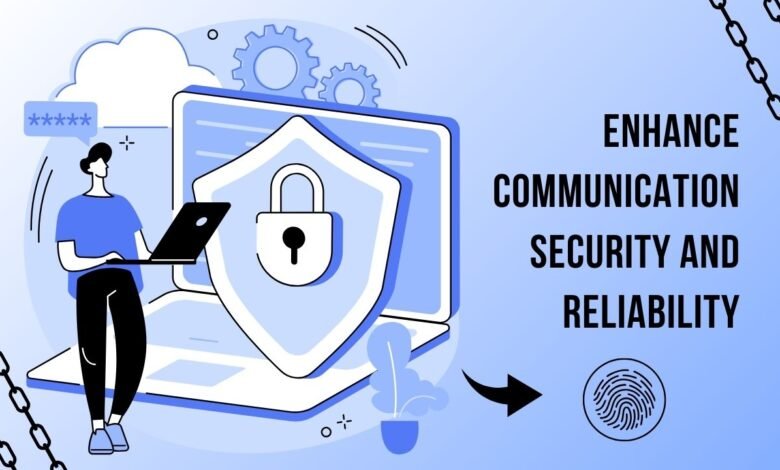How Can Enterprises Enhance Communication Security and Reliability?

Maintaining secure and reliable communication is vital for any business in today’s digital age. Enterprise telecommunications involves a variety of technologies and services that help companies communicate efficiently. However, with increasing cyber threats and the need for dependable networks, businesses must enhance security and reliability. This article outlines several strategies enterprises can use to strengthen their communication systems.
1. Implement Strong Encryption Protocols
Strong encryption protocols are among the most effective ways to ensure secure communication. Encryption converts data into a coded format that authorized users can only read, protecting sensitive information from unauthorized access. Enterprises should adopt end-to-end encryption for their communications, including emails, voice calls, and video conferences. By encrypting data both in transit and at rest, companies can significantly reduce the risk of data breaches and cyber-attacks. Regularly updating encryption methods and protocols is also crucial to stay ahead of potential threats.
2. Use Secure Virtual Private Networks (VPNs)
A secure Virtual Private Network (VPN) is another essential tool for protecting enterprise communications. VPNs create a secure connection over the internet, allowing remote employees to access the company’s internal network safely. This is particularly important for businesses with a distributed workforce or employees who frequently work from home or travel. VPNs help to prevent unauthorized users from intercepting sensitive data and provide a safe pathway for information exchange. By using a reliable VPN service, companies can enhance the security of their communication channels and protect sensitive business information.
3. Regularly Update and Patch Systems
Keeping communication systems updated is vital for maintaining security and reliability. Outdated software and hardware can be vulnerable to cyber-attacks, compromising the integrity of communication networks. Enterprises should establish a routine schedule for updating and patching their systems to address any security vulnerabilities. This includes updating firewalls, antivirus programs, and communication software. Regular system maintenance improves security and ensures that communication tools run smoothly, reducing downtime and enhancing overall reliability.
4. Train Employees on Cybersecurity Best Practices
Human error is often a significant factor in security breaches, making employee training a critical component of communication security. Enterprises should invest in training sessions to educate employees on cybersecurity best practices. This includes recognizing phishing emails, using strong passwords, and understanding the importance of not sharing sensitive information over unsecured channels. Training employees to be vigilant and proactive about security helps to create a more secure communication environment. It also ensures that all staff members know their role in maintaining the integrity of the company’s communication systems.
5. Monitor and Analyze Communication Networks
Continuous monitoring and analysis of communication networks are crucial for identifying potential security threats and improving reliability. Enterprises should use advanced monitoring tools that can detect unusual activities, such as unauthorized access attempts or sudden spikes in data usage. By analyzing network traffic and patterns, companies can identify and address issues before they escalate into major problems. Real-time monitoring allows for quick responses to potential threats, helping to maintain secure and stable communication channels.
Sand Technologies states, “Our advanced business telecom solutions dashboards offer centralized access to critical network metrics and dedicated tools, empowering clients to make precise adjustments to antenna placement, power, tower height, radio frequency planning and more to achieve peak network performance.”
Enhancing communication security and reliability is essential for protecting sensitive information and ensuring seamless business operations in enterprise telecommunications. By implementing strong encryption, using secure VPNs, keeping systems updated, training employees, and monitoring networks, enterprises can build robust communication systems that are both secure and reliable. Taking these proactive measures safeguards the company’s data and builds trust with clients and partners, ultimately supporting business growth and success.




